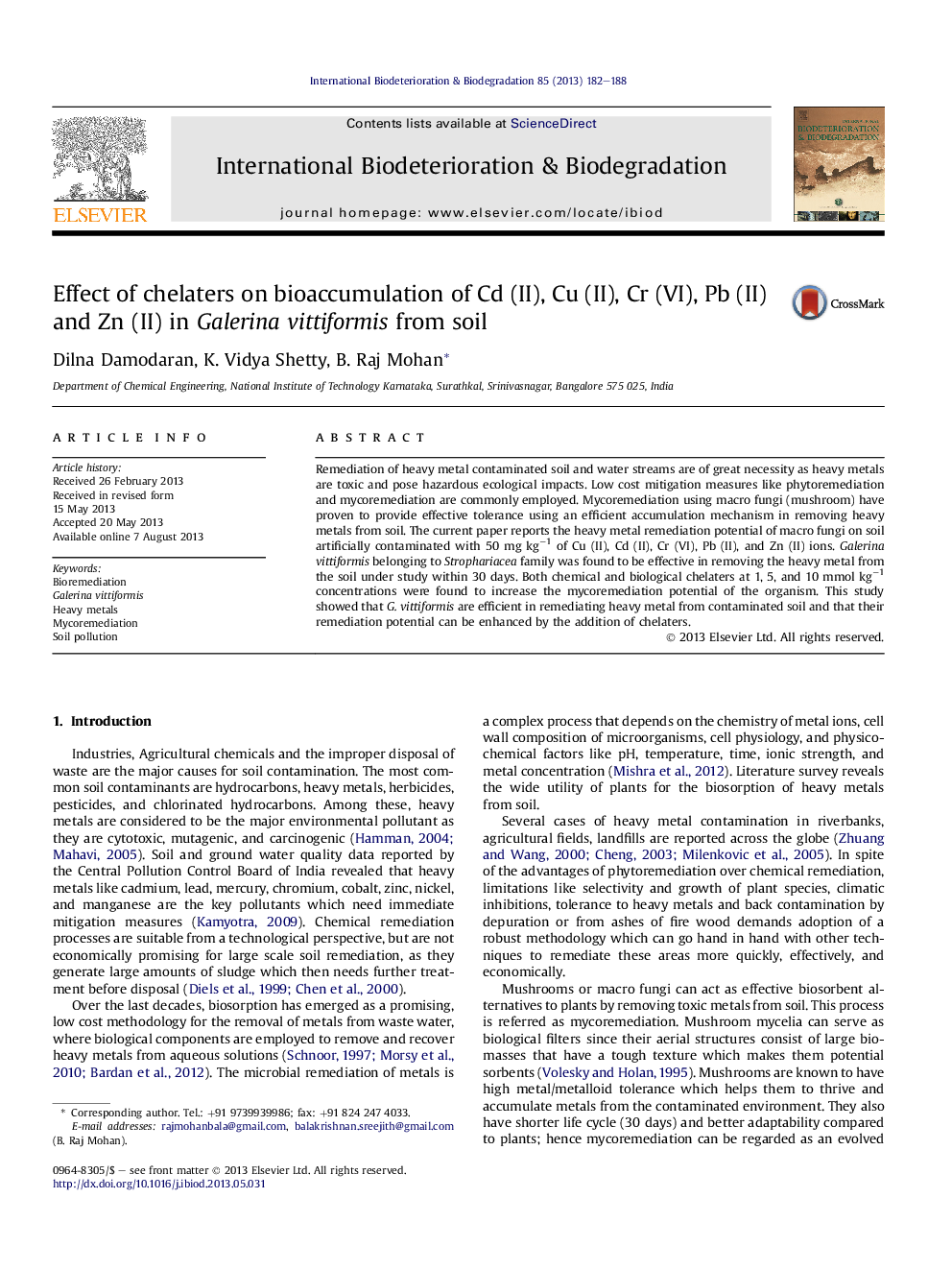| Article ID | Journal | Published Year | Pages | File Type |
|---|---|---|---|---|
| 6289289 | International Biodeterioration & Biodegradation | 2013 | 7 Pages |
Abstract
Remediation of heavy metal contaminated soil and water streams are of great necessity as heavy metals are toxic and pose hazardous ecological impacts. Low cost mitigation measures like phytoremediation and mycoremediation are commonly employed. Mycoremediation using macro fungi (mushroom) have proven to provide effective tolerance using an efficient accumulation mechanism in removing heavy metals from soil. The current paper reports the heavy metal remediation potential of macro fungi on soil artificially contaminated with 50 mg kgâ1 of Cu (II), Cd (II), Cr (VI), Pb (II), and Zn (II) ions. Galerina vittiformis belonging to Strophariacea family was found to be effective in removing the heavy metal from the soil under study within 30 days. Both chemical and biological chelaters at 1, 5, and 10 mmol kgâ1 concentrations were found to increase the mycoremediation potential of the organism. This study showed that G. vittiformis are efficient in remediating heavy metal from contaminated soil and that their remediation potential can be enhanced by the addition of chelaters.
Related Topics
Life Sciences
Environmental Science
Environmental Science (General)
Authors
Dilna Damodaran, K. Vidya Shetty, B. Raj Mohan,
